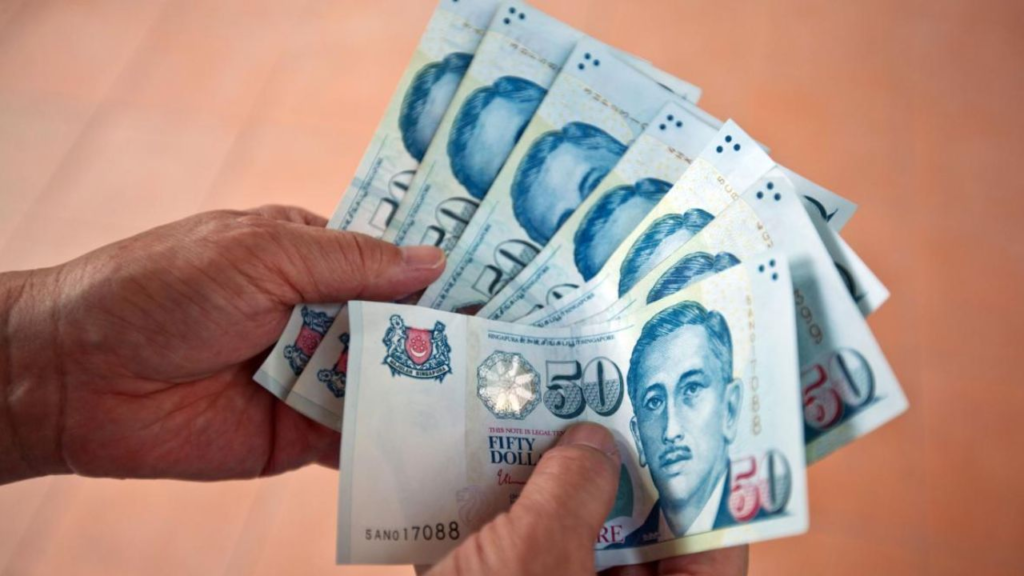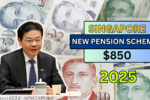Singapore has unveiled an ambitious and comprehensive financial support strategy in its Budget 2025, aiming to ease cost-of-living pressures, strengthen long-term resilience, and empower every segment of its population for the future. The strategy, announced by Deputy Prime Minister and Finance Minister Lawrence Wong, blends direct cash assistance with systemic reforms in healthcare, retirement, and workforce support.
The plan comes amid global economic uncertainty and rising domestic costs, with the government reaffirming its commitment to inclusive growth and long-term fiscal prudence.
Targeted Support for Singaporeans
Direct Cash Payouts
One of the most anticipated measures is a $700 cash payout to be disbursed in April 2025. This payout is part of the Assurance Package, designed to cushion the impact of inflation and the Goods and Services Tax (GST) hike. Eligible recipients are Singaporeans aged 21 and above with an assessable income of up to S$34,000 and who own no more than one property.
Details of eligibility can be found on the Ministry of Finance website.
$800 CDC Vouchers for All Households
Each household will also receive $800 worth of Community Development Council (CDC) vouchers. These can be used at participating heartland merchants and supermarkets, continuing the government’s push to support local businesses while providing direct relief to residents. For redemption details, visit go.gov.sg/cdcv.
Utility and Living Subsidies
Lower-income households, particularly those living in public rental flats, will benefit from enhanced U-Save rebates, aimed at subsidizing electricity and water bills. The Utilities-Save (U-Save) rebate is part of the GST Voucher scheme. More details are available at the GST Voucher official site.
Strengthening Support for Seniors
Singapore’s ageing population has been a focal point of social policies, and Budget 2025 intensifies this with several enhancements.
Silver Support Scheme
Under the Silver Support Scheme, quarterly payouts for eligible seniors—particularly those in the bottom 20–30% income group—will be increased. This provides continued income security for older Singaporeans who had lower incomes throughout life.
Flexi-MediSave and MediSave Matching
From April 2025, Singaporeans aged 60 and above will be allowed to use up to $300 annually from their or their spouse’s MediSave accounts under the Flexi-MediSave scheme for outpatient care.
Additionally, the government will launch a Matched MediSave Scheme for Seniors (MMSS) in 2026, where voluntary top-ups will be matched dollar-for-dollar, up to $1,000 annually for Singaporeans aged 55 to 70 with lower MediSave balances

Empowering Families and New Parents
Recognizing the challenges faced by young families, Budget 2025 also introduces improvements to parenthood and child development support.
MediSave Grant for Newborns
Singaporean newborns will automatically receive a $4,000 MediSave grant, which can be used for vaccinations, childhood development check-ups, and hospitalizations. More on this can be found at the Ministry of Health’s website.
MediSave Maternity Package
Parents can continue to use MediSave to cover delivery expenses and pre- and post-natal medical care under the MediSave Maternity Package, reinforcing support for parenthood in a high-cost environment.
Supporting Workers and Businesses
The Budget includes robust measures to support both employees especially lower-wage earners and businesses navigating post-pandemic recovery.
Progressive Wage Credit Scheme
The Progressive Wage Credit Scheme (PWCS) has been enhanced, with the government increasing its co-funding share for wage increments given to lower-wage workers in 2025 and 2026.
Corporate Income Tax Rebate
All businesses will receive a 50% Corporate Income Tax Rebate, capped at $40,000 per company. Even businesses with no taxable income will benefit, provided they employed at least one local worker in 2024. This aims to boost confidence and support enterprise resilience in a tightening global economy.
Future-Ready Economic Initiatives
Singapore is also taking bold steps to position itself for future growth.
Stock Market Incentives
To attract more firms to list locally, the government is offering tax incentives for new public listings on the Singapore Exchange (SGX). These include reduced listing costs and corporate tax breaks for qualifying firms, further strengthening Singapore’s status as a regional financial hub.
Exploring Nuclear Energy
A groundbreaking announcement in Budget 2025 is the exploration of nuclear energy as a potential long-term solution to power energy-intensive industries like AI, semiconductors, and biopharma. While still in the feasibility stage, this reflects Singapore’s willingness to invest in resilient, low-carbon energy systems.
Conclusion
Singapore’s Budget 2025 is more than a financial plan—it’s a national strategy for resilience and empowerment. With substantial short-term support and visionary long-term policies, it addresses immediate needs while laying the groundwork for a sustainable, inclusive future.
As the country prepares for the next decade of demographic, economic, and technological shifts, this budget reflects the government’s commitment to ensuring no one is left behind.

Pankaj Kumar is a journalist at Chandigarh X, covering admit cards, recruitment, and government schemes. His articles provide readers with detailed insights into application processes, eligibility, and exam updates.
Outside of work, Pankaj enjoys traveling, fitness, and cricket, often participating in local matches on weekends.



